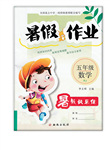题目内容
“Sticks and stones may break my bones, but words will never hurt me.”
You probably heard those lines in grammar school, but do you really agree that harsh(严厉的) or negative words do not harm us? Words have power. Surely we all have had our feelings hurt by something someone said.
We may not say words to hurt others, but the way we interpret (解释) them and how we say them may cause great harm. Here’s an example:
An ancient king dreamed all his teeth had fallen out. He sent for a wise man to explain his dream to him: the dream means that all your relatives will die and you will be left alone! The king was very angry and threw the interpreter into prison. He then sent for another interpreter who said, “Congratulations! King! You will live many more years. In fact, you will survive all your relatives. Long Live the King!”
Both interpreters gave the same interpretation, but there was a huge difference in the way they said it.
Our speech must be understood by those who hear our words, but the way we say things and the intention behind them have as much power as the words themselves. Words can cause anger or appreciation. Which would you rather receive?
People who say harsh and negative things may not mean to harm, but have you ever known anyone who is a naysayer? They often look at the dark sides of things. They always see the glass as half empty rather than half full. How do you feel when you are around this type of person? Remember: words have power. Use them wisely.
1.The author mentions the story of the ancient king to show that _____.
A. one dream sometimes has different explanations
B. good words can bring good luck to people
C. people should be careful when talking to a king
D. different ways of saying things have different effects
2.The underlined word naysayer in the last paragraph refers to a person who always _____.
A. has a negative attitude
B. likes to be praised
C. talks big
D. likes to repeat what others say
3.According to the text, how can people understand each other better?
A. By sharing different life experiences
B. By accepting different habits.
C. By properly using words
D. By recognizing different values.
4.The passage mainly talks about ______.
A. the power of words
B. the cruelty of the king
C. how to understand others
D. how to build good relationships
1.D
2.A
3.C
4.A
【解析】
试题分析:棍棒和石头可以打断我的骨头,但语言却不能伤害我,通过举例:对一个的同样解释但解释的方式不同得到截然不同的结果。说明语言的力量,记住,聪明的运用语言。
1.D细节理解题。根据倒数第三段的内容:两个翻译给出的是同样的翻译,但解释的方式之间有着很大不同。这是造成国王听的完不通的解释后作出的不同的反应的原因,因此D正确。
2.A细节理解题。根据划线句子下句They often look at the dark sides of things. They always see the glass as half empty rather than half full他们总是看到事情的阴暗面,他们总是看到杯子空的那一半而看不到满的那一半说明:他们有着消极的态度。所以选A。
3.C细节理解题。根据最后一段最后一句Remember words have power. Use them wisely.得出人们要更好的彼此理解,用词要恰当。所以选C。
4.
考点:考查生活知识类短文阅读

 暑假作业暑假快乐练西安出版社系列答案
暑假作业暑假快乐练西安出版社系列答案 house. He was a young thief, without . In fact, this was his first professional appearance. So he had planned everything .
house. He was a young thief, without . In fact, this was his first professional appearance. So he had planned everything .